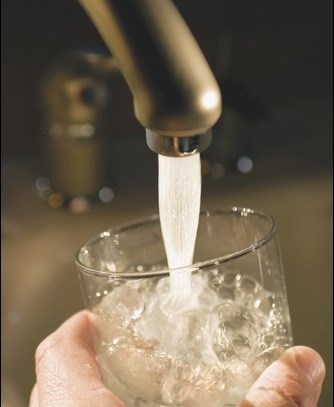KELOWNA, B.C. — I've spent a lot of time lately looking at the evidence for rules about healthy eating. But consumption correctness is not confined to what we eat. We are also encouraged to pay attention to making sure we stay hydrated: topped-up with plenty of water.
And not just when we are thirsty, but at frequent intervals throughout the day. The arguments we hear in support of this proposition are no secret: drinking water reverses a (recently-recognized) widespread water deficiency, and also plumps up the skin, aids digestion, improves the function of the heart, liver, kidneys and joints, and is beneficial in many diseases including cancer, heart disease, asthma and allergies. Strenuous exercise (which we all should do) requires fluid replacement, and soft drinks, tea and coffee, and (of course) anything containing alcohol are actually dehydrating.
Whole aisles of food stores are piled with water for sale even where nearly-pure water comes out of the tap for free, and it seems at times as though everyone in a public place is attached to a container filled, apparently, with water.
I can't say exactly when I started to notice a general preoccupation with this, but it may have been about the same time that bottled water for sale became popular. I live in a community where tap water is plentiful and completely safe, and yet one estimate suggests that 30 per cent of the people in our city drink only bottled water.
The health issue when we talk about hydration is whether there's any benefit to drinking more water than you feel like because you're thirsty. It's quite well known that elderly people don't always get thirsty, and encouraging drinking water in nursing homes seems to make sense for that reason, although I didn't find any convincing studies showing any benefit. But among healthy, non-frail individuals? Suffice it to say the science doesn't hold much water.
Here is what my literature search on this subject turned up. There was only one(1) apparently carefully done meta-analysis of hydration's effect on disease. The preamble warns against extreme dehydration, but also against overconsumption of water which can cause problems too.
The only controlled trials quoted involved pregnancy, kidney stones, and toxicity with foreign substances, and these looked at short-term dehydration only. There are "quasi-experimental studies" to support longer-term hydration helping to treat urinary tract infections and diabetic ketoacidosis, and dehydration causing an appearance of mitral valve prolapse on echocardiogram. All other ideas about staying hydrated came from "descriptive studies such as comparative, correlation, and case control studies," and the author properly uses the term "may" to describe the probability of benefit here.
A lot of published information on hydration has to do with athletics and heat syndromes. The jury still seems to be out on exactly the right way to deal with water and volume loss in high-performance athletes and people exposed to extreme heat(2). It's clear you can mess with the balance of salt and water by drinking too much water and this is usually dealt with by taking some salt. But advocates of Hydration for Everybody are not talking about these extreme situations, but ordinary healthy people going about their relatively low-stress activities in a temperate or artificially-controlled climate.
Based on variable-quality evidence, then, you might want to pay attention to hydration even when not thirsty if you are taking certain medications, are a diabetic, have had kidney stones, are pregnant, are a frail elderly perso. But consuming the fluid that would accomplish this would be reasonable only as long as you didn't have heart failure, kidney failure, or a psychiatric condition. I couldn't find any reliable information to support drinking water (unless you're thirsty) in any other situation.
So aggressively staying hydrated isn't supported by any respectable evidence. It worries me that, as more and more people who are convinced we should be drinking lots of water all the time, use the same sort of standards to get suspicious of the quality of tap water, public vigilance to maintain that quality may begin to relax.
The only winners will be bottlers of water for sale, and a few histrionic hydration advocates. The losers will be all the rest of us.
References
1. F. Manz, "Hydration and Disease," Journal of the American College of Nutrition, Vol. 26, No. 5, 535S-541S (2007).
2. T. Noakes and Immda, "Fluid Replacement during Marathon Running," Clinical Journal of Sport Medicine, (5):309-18 (September, 2003).
— John Sloan is a family physician whose practice is confined to home care of frail elderly people, and avoiding institutional care of these patients. He has published numerous articles and several books on healthcare. His most recent ebook is Forbidden Food: How Science Says you can Eat what you Like and Like what you Eat.
www.troymedia.com




